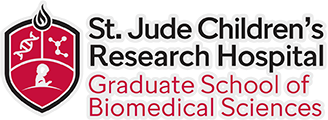
We welcome applicants who are completing or have recently completed an undergraduate degree in a biological or quantitative field and professionals who are looking to expand their expertise. Prospective students who are interested in learning to effectively analyze and interpret data to gain novel biological insights are encouraged to apply.
Subscribe to our email list to receive program updates and a reminder when the application period is closing.
Eligibility
Candidates must meet the following minimum criteria for enrollment:
- An undergraduate degree (BA, BS or equivalent) in biology, chemistry, physics, mathematics, statistics, computer science, or similar scientific discipline.
- U.S. citizenship or permanent resident status
- Written and verbal proficiency in English language
Admissions timeline
| Dates | Admission Process |
|---|---|
| September | Application period opens |
| December 1, 11:59 pm PST | Deadline: Application period closes |
| January to early February | Online screening and in-person interviews conducted |
| Late February | Admissions committee sends offer letters to accepted candidates |
| April 15 | Deadline: National acceptance responses submitted |
| Late July or early August | Orientation |
| August 11 | First day of classes |
How to Apply
We require an online application and additional supplemental materials.
Complete an Online Application
In the online application, you will be asked to provide demographic information and the following materials (please check application for accepted file formats).
- A Curriculum Vitae giving full details of your education, academic honors and professional experience and achievements.
- Official transcripts of academic records. These must be sent directly from the institution’s registrar to the registrar of the Graduate School.
- A brief essay (≤ 750 words) describing your academic readiness and professional preparation for the program, how the program will help you achieve your career objectives, and what specific St. Jude data science research programs or faculty are of most interest to you.
- A brief essay (≤ 500 words) describing a time that you achieved a personal or professional goal through grit, creativity, or a combination of the two.
- Email address of three to five individuals who will provide letters of recommendation. The letters must be submitted directly via the website and should describe your academic successes, professional background, potential for achievement at the graduate level, and capacity for creative, self-directed study.
- You may save your application at any time and complete it later; however, it must be completed and submitted by the deadline.
Our Vision
Our vision for “collaborative and translational research” that leads to scientific discovery depends on an environment of diversity which presents itself in many different forms, including race or ethnicity, religion, sex, nationality or place of origin, disability, socioeconomic status and unique work or life experience. The Graduate School is committed to cultivating a welcoming environment that values different backgrounds, approaches and perspectives—all essential ingredients for true academic excellence. We have a strong history to build on and the commitment to create a stronger future.
Our Commitment
St. Jude Children’s Research Hospital Graduate School of Biomedical Sciences does not discriminate or grant a preference on the basis of race, national origin, sex, genetic information, age, religion, disability, veteran’s status, disabled veteran’s status or any other status protected by federal or Tennessee law. The St. Jude Children’s Research Hospital Graduate School of Biomedical Sciences is committed to creating a welcoming learning environment.
Questions?
For questions regarding the Master's in Applied Biomedical Data Sciences Program at St. Jude, please contact us at MSABDS@stjude.org.

